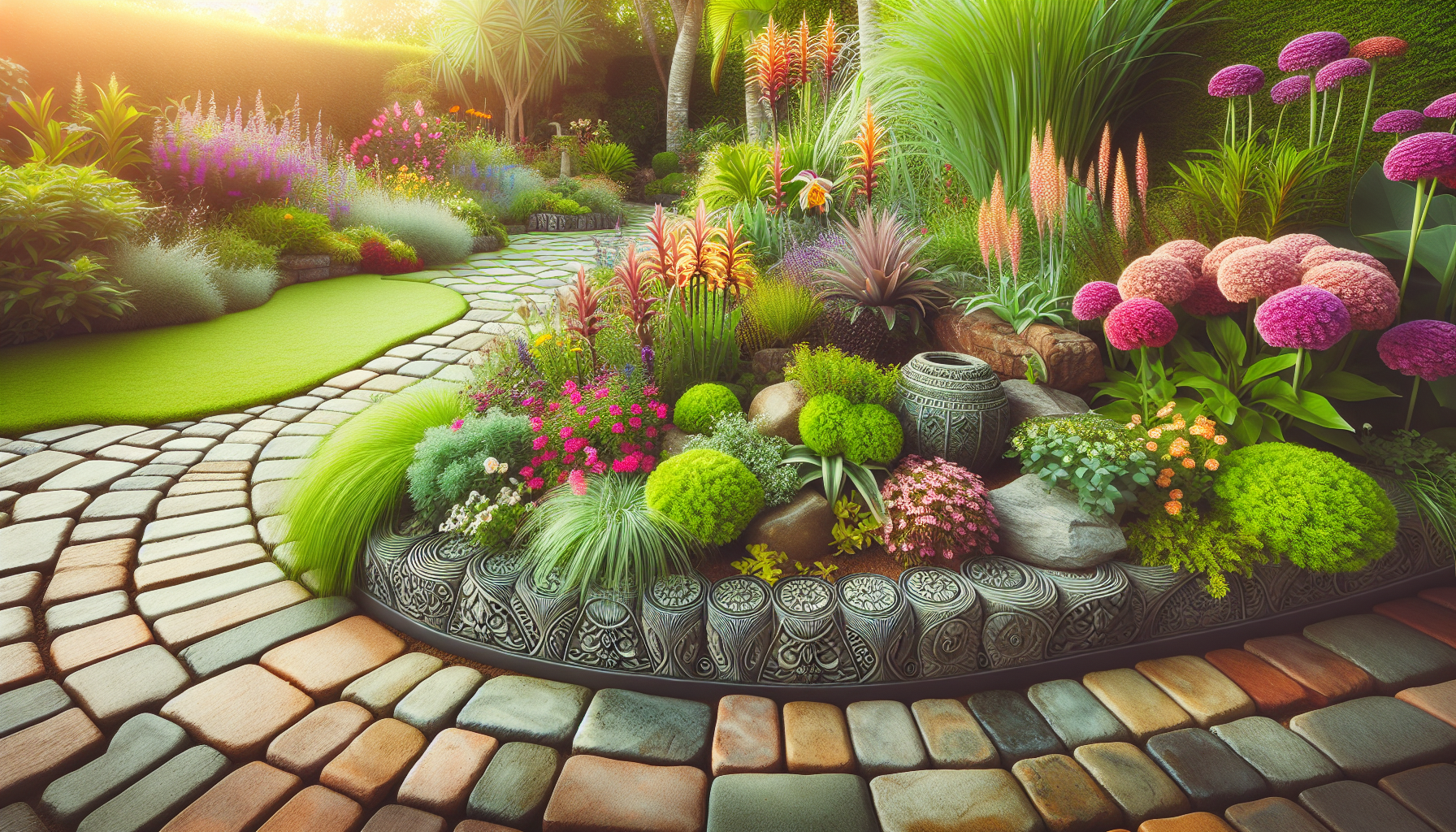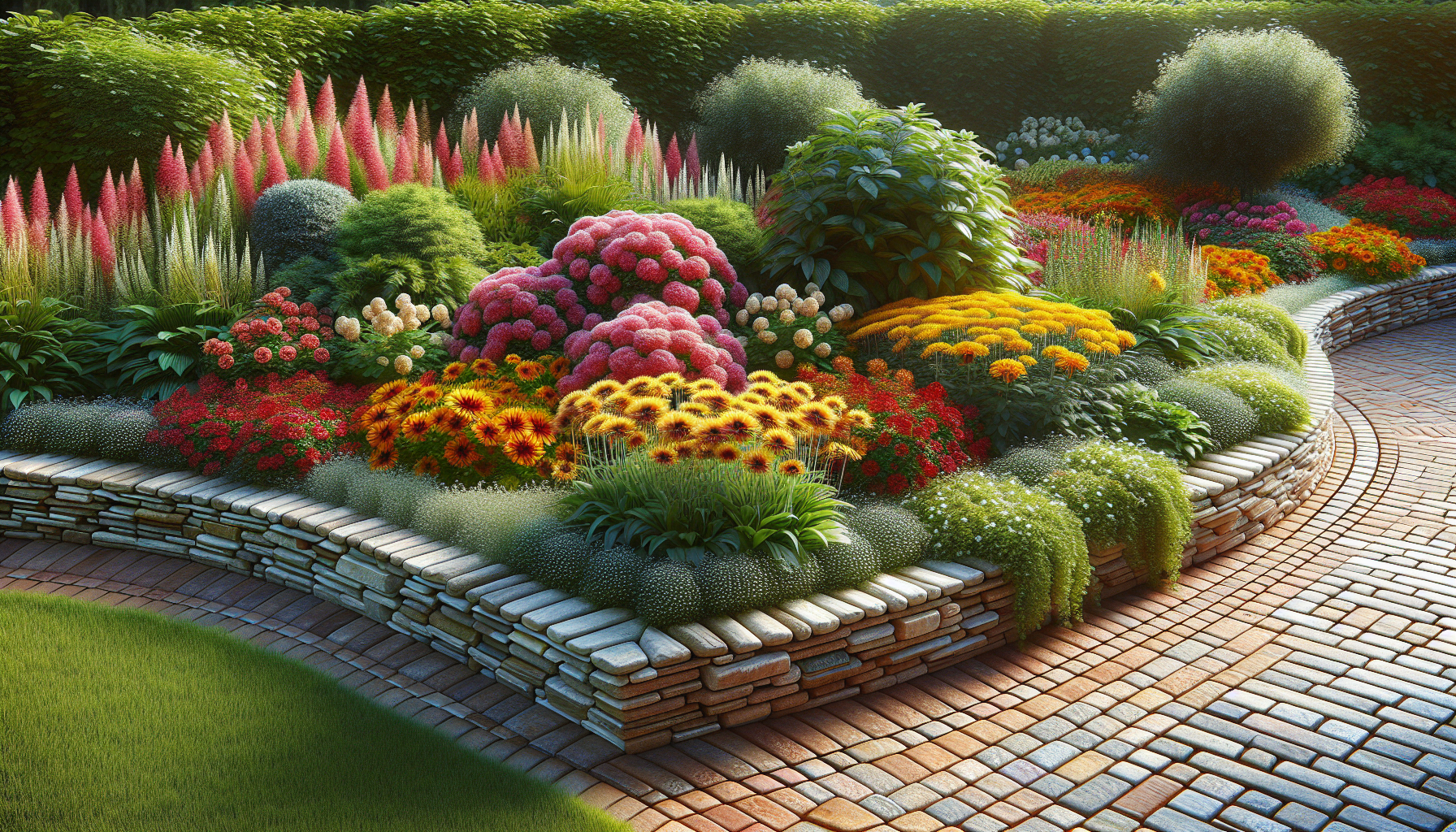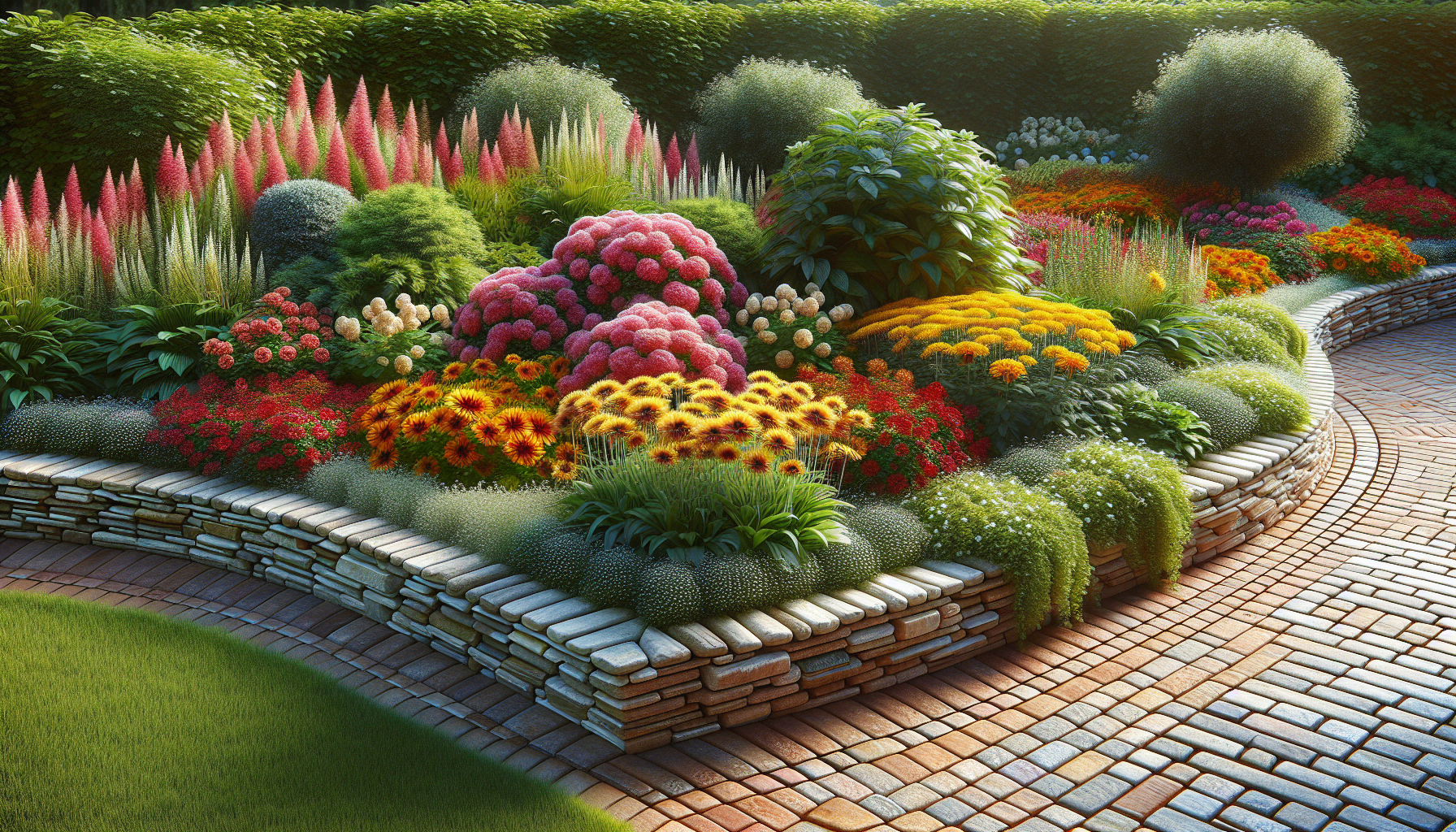Have you ever wondered how to enhance your garden’s beauty and functionality? If you’re looking to define your garden’s boundaries while adding an appealing design element, hardscaping for garden edging could be the perfect solution for you. Hardscaping involves using materials like stone, brick, or concrete to create pathways, borders, and other structures, making it an essential part of garden design.
Introduction to Mesa
Mesa is one of the largest cities in Arizona, located conveniently just to the east of Phoenix. With a population exceeding half a million, it boasts a vibrant community and diverse culture. The climate in Mesa is characterized by hot summers and mild winters, making it an ideal location for gardening enthusiasts. You may find that many local residents take pride in their outdoor spaces, creating beautiful gardens that flourish in the warm sun.
The neighborhoods in Mesa vary from suburban developments to rustic areas near the Superstition Mountains, offering residents a mix of scenic views and modern amenities. As you stroll through the streets, you’ll notice gardens adorned with colorful flowers, native plants, and, increasingly, well-designed hardscape elements. With the right hardscaping, your garden can transform from a simple patch of land into a stunning outdoor oasis.
What is Hardscaping?
Hardscaping refers to the non-plant elements of landscaping, including features like pathways, patios, retaining walls, fences, and garden edging. Unlike softscaping, which focuses on plants and trees, hardscaping provides a structural framework for your garden that can enhance both its aesthetics and functionality.
You can use hardscaping to create defined areas within your garden, separate different sections, or even add walking paths. This framework serves practical purposes as well, such as directing water flow, preventing erosion, and easing maintenance.

Benefits of Hardscaping for Garden Edging
Integrating hardscaping with garden edging offers several benefits. Here are a few key reasons why you might want to consider it for your space:
1. Clean Lines
Hardscaping allows you to establish clear boundaries in your garden. A defined edge can separate your lawn from flower beds or vegetable patches, making your garden look tidy and intentional. It provides a crisp, organized appearance that enhances your outdoor space.
2. Erosion Prevention
By installing hardscape edging, you can help reduce soil erosion. This is particularly beneficial in areas with uneven terrain or heavy rainfall. Hardscaping materials can help hold the soil in place, retaining moisture and nutrients for your plants.
3. Weed Control
A well-placed hardscape edge can create a barrier against unwanted weeds. This maintenance-free option limits the ability of weeds to encroach on your garden beds, allowing your plants to thrive without competition.
4. Aesthetic Appeal
With countless materials, colors, and designs available, hardscaping can significantly enhance your garden’s visual appeal. Whether you prefer the rustic charm of stones or the sleek look of modern concrete, hardscaping can elevate your garden’s design.
Choosing the Right Materials for Your Hardscaping
There are various materials you can use for hardscaping. Below are common options, each with its pros and cons.
| Material | Description | Pros | Cons |
|---|---|---|---|
| Stone | Natural, durable materials available in various shapes | Attractive, weather-resistant | More expensive, heavy to install |
| Brick | Classic choice that comes in various colors and patterns | Timeless appeal, easy to work with | Can break under heavy pressure |
| Concrete | Versatile and can mimic other materials through stamping | Durable and customizable | Less natural appearance |
| Pavers | Interlocking stones or bricks for flexibility | Easy installation, various designs | May shift over time |
| Timber | Natural wood provides warmth and texture | Environmentally friendly | Can rot or warp in wet conditions |
When choosing materials, consider the overall style of your garden, budget, and how much maintenance you’re willing to do.

Planning Your Garden Edging Installation
Before you start your hardscaping project, it’s beneficial to plan. Here are steps to help you through the process:
1. Assess Your Space
Begin by evaluating your garden. Take note of existing features, such as trees, plants, and existing hardscape elements. What areas need definition? Which plants would benefit from protection?
2. Determine the Style
Decide on the look you want to achieve. Are you looking for a modern aesthetic or a rustic charm? The style of your edging should complement your garden and home.
3. Measure and Mark
Use stakes and string to outline where you want the edging to go. Measure carefully to ensure that your design fits well within your garden space.
4. Choose the Depth
Consider how deep your edging will go. A standard depth of 4-6 inches is often sufficient, but adjust as needed based on your materials and the surrounding soil.
Installation Process for Garden Edging
Once you’ve planned, it’s time to get to work. Here’s a straightforward method to install garden edging using hardscape materials.
Step 1: Prepare the Area
Clear your designated area of grass, weeds, or debris. Ensure that the soil is level to provide a stable base for your materials.
Step 2: Create a Trench
Dig a trench where your edging will go. The trench should be deep enough to accommodate the height of the edging material and wide enough for stability.
Step 3: Lay the Base
For most hardscaping materials, you’ll want to create a solid base. Place a few inches of gravel in the trench, which will improve drainage and help stabilize your edging.
Step 4: Install the Edging
Carefully place your hardscape materials into the trench. Ensure they are level and secure. For stones or bricks, you may need to use a rubber mallet to tap them into position.
Step 5: Backfill and Compact
After placing your materials, backfill the trench with soil. Use a tamper to compact the soil around the edging, securing it in place.
Step 6: Final Touches
Once installed, clean the area around your edging, removing any excess materials. You may want to add decorative rock or mulch around the edging to enhance the look.
Maintenance Tips for Hardscaping
To keep your hardscape edging looking its best, regular maintenance is essential. Here are a few tips:
- Clean Regularly: Remove debris, dirt, and weeds from your hardscape edging to maintain its appearance.
- Inspect for Damage: Keep an eye out for cracks or shifting materials. Address any issues promptly to prevent further damage.
- Weed Control: Occasionally, weeds may still pop up. Pull them out by hand or use a targeted weed killer as needed.
- Reseal if Needed: Some materials, like concrete, may benefit from occasional resealing to protect against stains and weather damage.
Recommended Hardscaping Services
Installing hardscaping can be labor-intensive and require specific skills. If you’re looking for professional help with your garden edging, Xclusive Home Services can assist with all your hardscaping needs.
About Xclusive Home Services
Located at 14505 N. Hayden Rd., Ste. 101, Scottsdale, AZ 85260, Xclusive Home Services has been serving the community since 2025. They offer a broad range of home service solutions, including hardscaping installations tailored for your unique outdoor vision.
To reach them, call (602) 341-5545 or email management@xclusivehomeservicesco.com. Their friendly team is ready to help you transform your garden with beautiful and practical hardscaping.
Conclusion
Enhancing your garden with hardscaping can provide the structure and aesthetics you desire. It’s an excellent way to define spaces, prevent erosion, and control weeds while beautifying your outdoor environment. By planning carefully, choosing the right materials, and following the installation steps, you’ll be well on your way to creating a stunning edged garden.
Whenever you need professional assistance, remember that Xclusive Home Services is available to guide you through the hardscaping process. With their expertise, you can achieve the garden of your dreams, ensuring it remains beautiful and functional for years to come.


